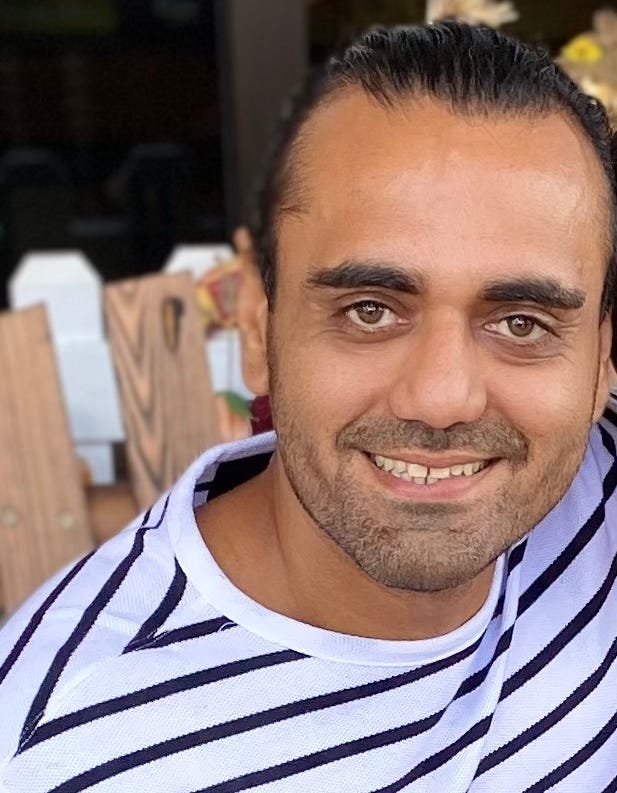Pain is inevitable. Suffering is optional
5 strategies to inject objective peace and calm into your life.
Source: Elizabeth Gilbert on the Tim Ferris Show
“People have a hard time letting go of their suffering. Out of a fear of the unknown, they prefer suffering that is familiar.”
― Thich Nhat Hanh
Bad things happen every day, often to good people. It’s painful. The pain is real.
But, even with this real pain, the suffering can be optional.
What is the difference between pain and suffering?
Buddhists believe that anytime you experience a negative event, two arrows fly your way. One arrow represents physical pain and the other emotional suffering. In life, the first one is inevitable, but the second one is optional.
So, how can you avoid suffering?
The answer lies in understanding how your brain works, how it interprets reality, and how it attaches meaning to your experiences. You tend to believe everything you think of. Every thought in your head is not the truth, yet you treat it as such.
Believing everything you think is the quickest, shortest path to anxiety and fear because the majority of your thoughts are generated by the internal alarm system responsible for your survival. Your brain is constantly scanning to find things that could kill you. That's why most of your thoughts are based on fear and worry.
The antidote is to recognize each thought as a notification on your phone. It pops up, and you can either cancel it or tap it to look deeper. Be selective about which thoughts you click on and pursue.
5 strategies to stop suffering by nurturing the inner You
Two-way Dialogue/Prayer
Prayer is often a desperate cry or humans shouting demands at the Divine as if placing orders through a cosmic Amazon Prime. You plead and place your order but rarely wait for a response. It’s a one-way interaction. It’s saying Marco and never stopping to hear Polo. Not only is it incomplete, but it’s ineffective.
Instead, two-way prayer intentionally focuses on what you hear back.
If Divine or prayer is too triggering, think about having a dialogue with your Inner Voice. You have deep wisdom inside you; tap into it.
You can do this by writing the question about whatever is bothering you and deeply pondering it for 5-10 minutes. Look for an honest, pure, loving, and unselfish response. If it isn't pure, loving, and unselfish, It didn’t come from your Inner Voice. It came from your Ego. Try again.
Here is a 5 min instructional on two-way prayer
The most critical part is to listen. Be quiet and listen to what your Inner voice is trying to uncover. Don’t give into your ego because all your ego wants is a dialogue that can be summarized as ‘yes, but’…
IFS Therapy- Often described as 'group therapy for one'. IFS therapy helps identify the different voices and personas in your head (i.e., protector, a provider) and bring them together. This ensures you get out of your own way, resolve any inner conflict, and stop any self-sabotage.
Ask yourself this question - How do you feel towards yourself, not about yourself?
Notice that framing using 'towards' will be more insightful and nurturing - closer to the truth. Using 'about' often generates a listicle of your shortcomings. Not always constructive.
Self-friendliness - write a letter to a younger self.
This helps summarize the wisdom you have already gathered. It also reminds you that there is an inner child - You. So, create an inner dialog that nurtures that inner child rather than beating it up emotionally and physically by squeezing him/her into societal confines.
Be a relaxed human: History tells us to admire ferocious, ambitious, and courageous humans. These qualities are admirable and needed at times. But fundamentally, for you to get through life, what you need most is a temperament that enhances your potential.
Imagine all the challenging situations you're dealing with right now. Would you be more or less effective if the only change was entering these situations with a relaxed mind?
Athletes, martial artists, and actors have known that the more relaxed person wins.
Next step then is to figure out what a relaxed you looks and feels like.
You could borrow from Elizabeth Gilbert, who relies on a trifecta of boundaries, priorities, and mysticism.
Mysticism, in particular, is intriguing. She defines Mysticism as an awareness of the divine. A supreme force that loves you is running the show. And for this show to keep running, your involvement might not always be necessary. Let go. Surrender. You're not here to be graded and judged. Handle the world, including yourself, with love, kindness, and compassion. Find out how you can serve.
Let go of your need for certainty, as it is doing nothing but creating anxiety and stress for you. Realize how little is in your control while using what little you do control wisely.
Ask your Inner Voice to answer - What would you have me know?
Hope this was useful in building the first steps towards a life where suffering is optional.
PM





